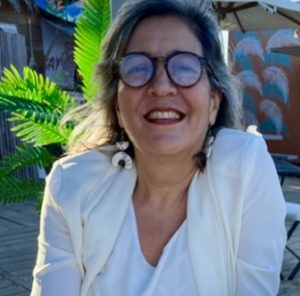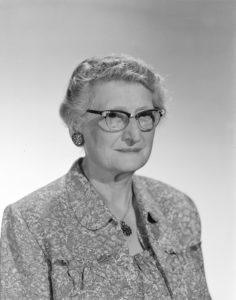 Cynthia García Coll, adjunct professor in the Department of Pediatrics, University of Puerto Rico, Medical Science Campus, will give the 2022 Mary Scott Lecture virtually on March 4 at 1:30 p.m. Mountain Time. This event is open to the community including students, faculty, staff, and professionals. García Coll’s presentation entitled “Culturalism:” Diversity, Racism, and the Development of Minoritized Children covers her research findings on:
Cynthia García Coll, adjunct professor in the Department of Pediatrics, University of Puerto Rico, Medical Science Campus, will give the 2022 Mary Scott Lecture virtually on March 4 at 1:30 p.m. Mountain Time. This event is open to the community including students, faculty, staff, and professionals. García Coll’s presentation entitled “Culturalism:” Diversity, Racism, and the Development of Minoritized Children covers her research findings on:
- How COVID 19 has been worse for BIPOC populations (Black, Indigenous, People of Color)
- How culture needs to be conceptualized in studying child development
- How the problem of immigration is in the receiving contexts and not the immigrants themselves
This event will include a presentation by García Coll with a follow up participant question and answer session. Registration is requested for this event (register here). This lecture will be recorded, and the link will be sent after the event to all registered attendees. However, we encourage your participation in the live event.
The Colorado State University Department of Human Development and Family Studies is hosting this year’s Mary Scott Lecture, which is funded by the College of Health and Human Sciences Mary Scott Lecture fund. Co-hosts from the department are Professor Zeynep Biringen and Associate Professor Lisa Daunhauer.
“We wanted to bring in a speaker with relevance to diversity,” said Biringen. “We also wanted a speaker who did research in that area – not a policy maker or a novelist, but a researcher who could be inspiring and stimulating to our community.”
García Coll has a long track record researching diversity issues, specifically in BIPOC populations. She is well-known in the field for her work on minoritized youth and has recently been conducting research on how BIPOC populations have fared during the pandemic.
“The power of virtual presentations allows attendees to have a connection with someone who we wouldn’t typically have the ability to interact with,” said Daunhauer. “We hope people take advantage of this rare opportunity.”
About Cynthia García Coll
García Coll is a developmental psychologist. She received her bachelor’s degree from the University of Puerto Rico, her master’s degree from the University of Florida, and her Ph.D. from Harvard University. She is currently an adjunct professor in the pediatrics department at the University of Puerto Rico Medical School. García Coll is also the Charles Pitts Robinson and John Palmer Barstow professor emerita at Brown University.
Prior to moving back to Puerto Rico in 2011, García Coll was a professor of education, psychology, and pediatrics for 30 years at Brown University. Her research focuses on the interplay of sociocultural and biological influences on child development with particular emphasis on populations that live in at-risk conditions and/or are considered minorities. She has published over 150 peer reviewed articles, book chapters, and books.
García Coll has served on the editorial boards of many leading academic journals. She was an editor of Child Development and, formerly, of Developmental Psychology. She is a fellow of the American Psychological Association and the Association for Psychological Science.
About Mary Scott

The Mary Scott Lecture Series at CSU is made possible by a charitable trust endowed by Mary E. Scott to the College of Health and Human Sciences upon her death in 1984. The purpose of the Mary E. Scott Lecture Series is to address a topic relevant to the lives of individuals and families. Throughout her career as a social worker, Scott was committed to improving the lives of those around her. Born in Tinmath, Colorado, in 1883, she attended Fort Collins High School, earned a B.A. in history and economics from Colorado College, and furthered her education with graduate study in sociology at Columbia University.
She began her social work career at Ellis Island, helping immigrants become oriented to life in the United States. Most of her career, however, was spent working for the Y.W.C.A. She was a staff member at the national office from 1913 to 1935 and served as executive director of the Y.W.C.A.’s central branch in Pittsburgh until 1945, when she retired and returned to Colorado. She served on CSU’s governing board, then called the State Board of Agriculture, from 1961 to 1968 and was presented with an honorary Doctor of Humane Letters degree in 1973.
The Department of Human Development and Family Studies is part of CSU’s College of Health and Human Sciences.